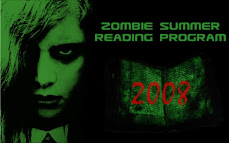 Heartsick
Heartsick by Chelsea Cain
"Whatever you think this is going to be like, it's going to be worse." -Gretchen LowellLike Los Angeles and Wisconsin, the Pacific Northwest is serial killer country, and Cain's tense, grisly novel seems right at home in the dreary Portland climate. And while it might seem far-fetched for a book to feature not one, but two fiends in a city of just over 500,000, this is, after all, the region that gave us the Green River Killer and Ted Bundy. So I buy it. I've only been to the area once, but the place gave me serious
Wisconsin Death Trip bad vibes.
For ten years, the Beauty Killer task force sought to capture one of the Pacific Northwest's most prolific serial killers, operating on the assumption that they were dealing with a white male between the ages of 25 and 45. However, their man was really Gretchen Lowell, a psychopath with Breck Girl hair, heart-shaped face, and a flare with a scalpel.
At the end of her psycho-tenure, Gretchen kidnaps the head of the task force, a detective named Archie Sheridan, and tortures him for ten days before calling 911 to turn herself in. The book opens with a truly horrific scene, Gretchen pounding nails into Archie's ribs. Later on, the nails begin to look almost pleasant.
Archie lives, but is now a shell of his former self. He's hooked on Vicoden, separated from his family, and when he thinks no one's looking, he reaches into his shirt to trace the heart-shaped scar that Gretchen carved on his chest. And if that isn't creepy enough, he also visits her in prison every Sunday.
You may think I'm giving stuff away left and right here, but kids, that's just the backstory.
Because, you see, two years later there's a new killer terrorizing Portland. He preys on high school girls, rapes them, strangles them, and soaks their bodies in bleach before dumping them. The Beauty Killer task force is regrouped, and Archie is taken off disability leave to lead it.
For curious reasons that are gradually revealed, a pink-haired, emotionally damaged newspaper reporter is also welcomed to the task force. Susan Ward has been assigned to write a series on the "hero cop," warts and all, and she's equal to the task.
And though the novel has been drawing a number of comparisons to
The Silence of the Lambs, these don't really hold up. Gretchen Lowell isn't helping them solve the current case; in fact, most of her scenes are torture scene flashbacks. Still, she's a diabolically intelligent manipulator, and a compelling villain, even behind bars.
The ending wrapped up a little more neatly and quickly than I would have liked -- I'd really anticipated something much darker and messier; however,
Heartsick is a highly original thriller and impossible to put down.
If you liked...: the gruesome bleakness of Gillian Welch's
Sharp Objects, this book is for you.
_____________________
* with apologies to Outrageous Cherry, who were surely writing about girls who are "fun crazy," not "tear out your guts with a crochet hook crazy"
 83 years ago today, Truman Streckfus Persons, better known as the enfant terrible, was born in New Orleans.
83 years ago today, Truman Streckfus Persons, better known as the enfant terrible, was born in New Orleans.










